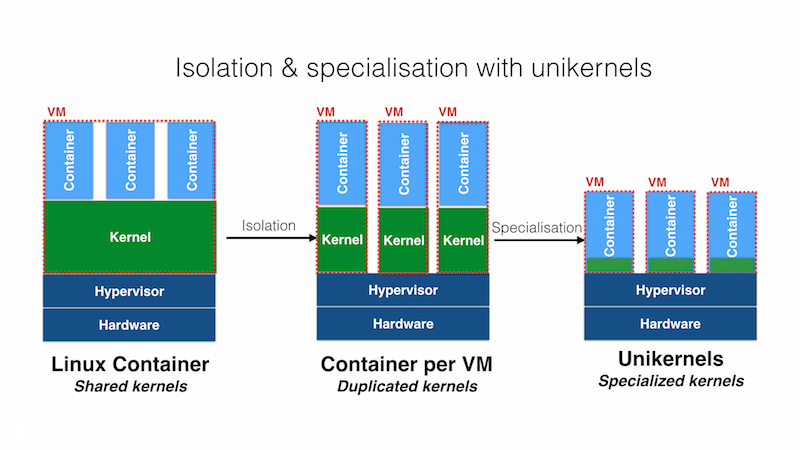from http://wiki.xenproject.org/wiki/Unikernels
What do Unikernels Provide?
Unikernels normally generate a singular runtime environment meant to
enable single applications built solely with that environment.
Generally, this environment lacks the ability to spawn subprocesses,
execute shell commands, create multiple threads, or fork processes.
Instead, they provide a pure incarnation of the language runtime
targetted, be it OCaml, Haskell, Java, Erlang, or some other
environment.
Unikernels Versus Linux Containers
Much has been made recently of the advantages of Linux Container
solutions over traditional VMs. It is said by container advocates that
their lightweight memory footprint, quick boot time, and ease of
packaging makes containers the future of virtualization. While these
aspects of containers are certainly notable, they do not spell the end
of the world of the hypervisor. In fact, Unikernels may reduce the
long-term usefulness of containers.
Unikernels facilitate the very same desirable attributes described by
the container proponents, with the addition of an absolutely splendid
security story which few other solutions can match.
So if you want just run Haskell application Unikernels may work for you, and they should have even less overhead than docker (and docker overhead is very small anyway), but if your application will need some prepared environment, need to communicate with non Unikernels software docker is a better choice. I guess it is too early to say will Unikernels be useful or widespread or not, only time will tell.

